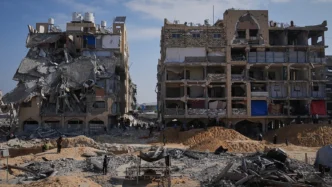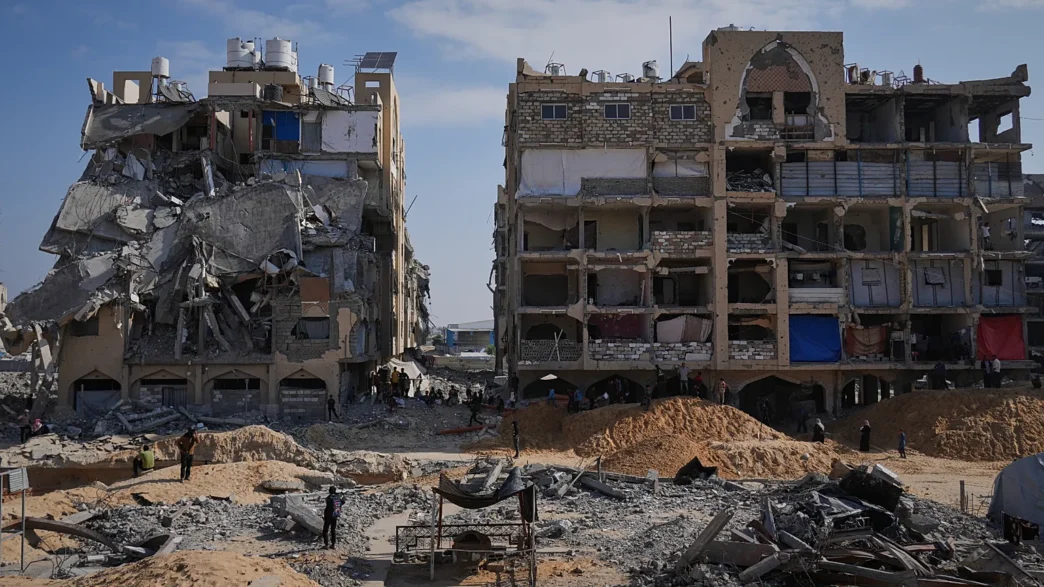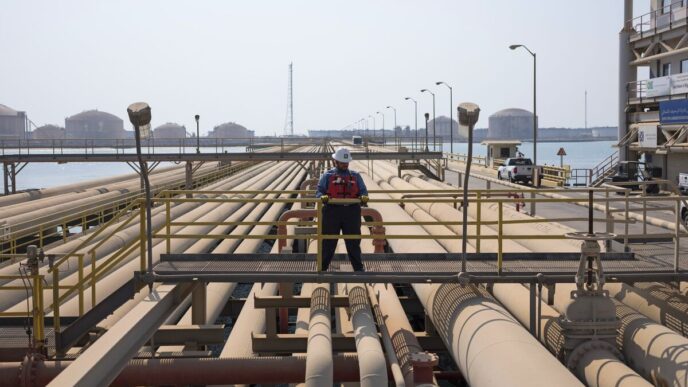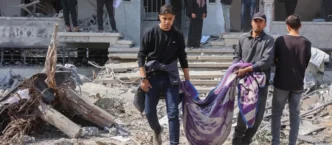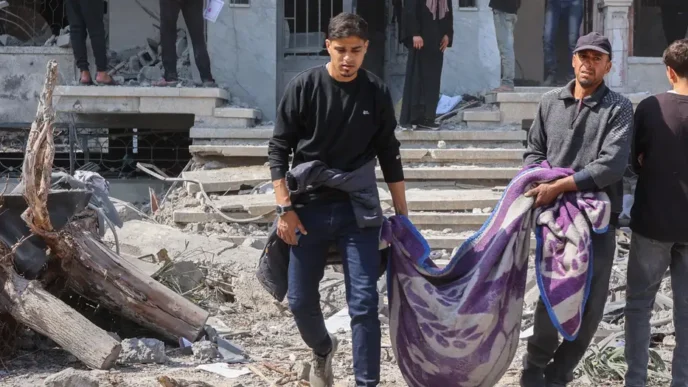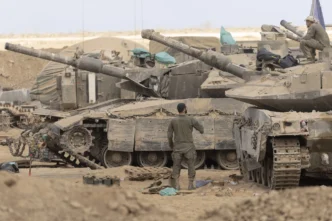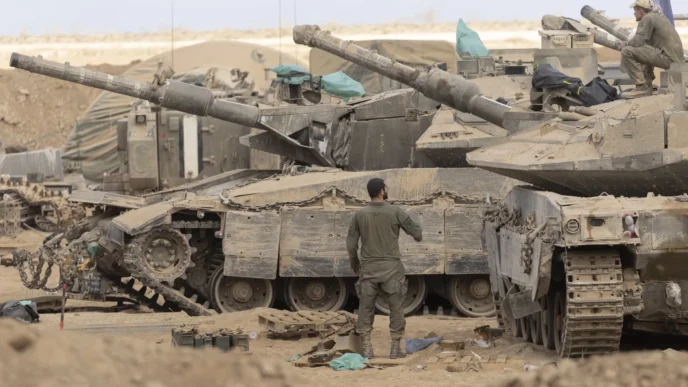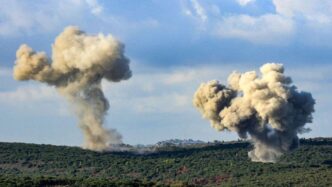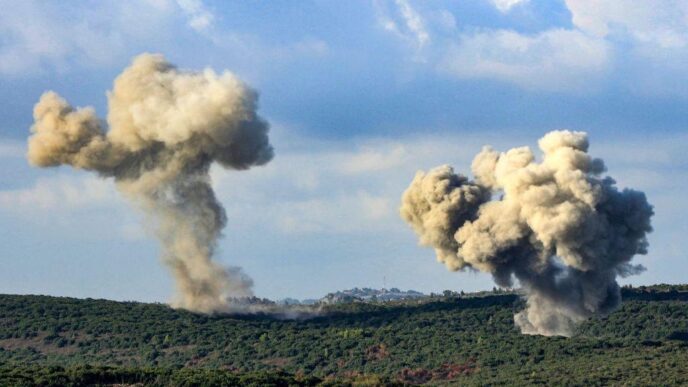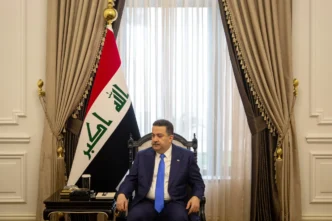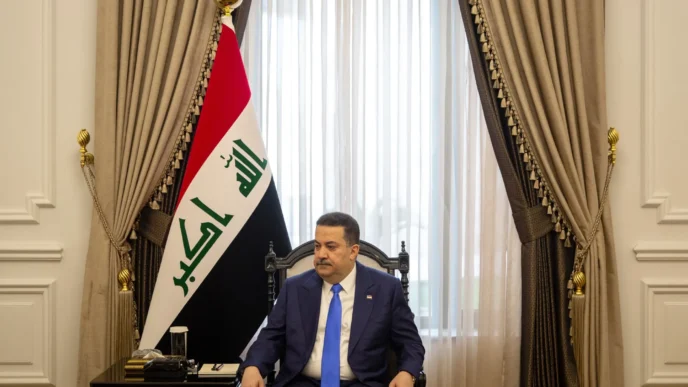U.S. President Donald Trump has declared that a ceasefire agreement between Israel and Hamas will “hold,” despite fresh Israeli airstrikes in the southern Gazan city of Rafah. The comments—delivered during a press briefing—come as regional tensions remain volatile and international pressure mounts for a sustainable end to the conflict.
The strikes, which targeted what the Israel Defense Forces (IDF) described as Hamas command infrastructure and militant positions, reportedly resulted in casualties and renewed fears of a breakdown in peace efforts. Palestinian media reported damage in civilian areas, while humanitarian organizations expressed deep concern over the safety of displaced families sheltering in Rafah—long considered one of Gaza’s last refuges.
Trump Insists Ceasefire Remains Intact
Despite the flare-up in violence, Trump said ongoing diplomatic efforts were “on track” and insisted that both sides remained “committed to the broader framework” of the ceasefire—brokered in recent weeks by a coalition of mediators including the United States, Qatar, and Egypt.
“There will always be incidents, but the ceasefire will hold,” Trump said, framing the strikes as “targeted defensive actions” rather than a collapse of the agreement. He emphasized that negotiations are continuing behind the scenes to prevent a return to full-scale conflict.
Trump, who has positioned himself as a potential negotiator in Middle East peace efforts if he returns to office, also hinted at new diplomatic proposals but offered few details.
Israel Defends Strikes as ‘Necessary’
The IDF confirmed the strikes, claiming they were in response to renewed attacks by Hamas militants operating near Rafah. Israeli officials said the militant group had violated ceasefire commitments by launching rocket salvoes toward Israeli border communities and attempting cross-border incursions.
“Israel has the right to defend itself,” said an IDF spokesperson. “These strikes were precise, intelligence-based responses to active threats.”
Israeli government officials reiterated that their military operations are limited and do not signify a withdrawal from ceasefire negotiations.
Hamas Accuses Israel of ‘Serious Violation’
Hamas, however, condemned the strikes, calling them “a dangerous escalation and a violation of the ceasefire terms.”In a statement, the militant organization accused Israel of “sabotaging peace efforts” and warned of possible retaliation if airstrikes continue.
Political analysts note that Hamas may use the incident to gain leverage in negotiations over prisoner releases, border conditions, and humanitarian access.
Humanitarian Crisis Deepens
Rafah remains one of the most densely populated areas in Gaza, with hundreds of thousands of displaced Palestinians taking refuge there due to earlier Israeli operations in northern and central Gaza. Aid agencies say the strikes complicate relief efforts and increase civilian risk.
- UN observers reported new displacement following the strikes
- Medical facilities in Rafah warned of critical shortages of supplies
- Aid convoys remain restricted at border crossings
A spokesperson for the UN Office for the Coordination of Humanitarian Affairs urged both parties to uphold international law and protect civilian lives.
International Community Watches Closely
Global leaders reacted cautiously to Trump’s assertion that the ceasefire would hold. European governments called for restraint and a renewed commitment to negotiation, while Qatar and Egypt intensified back-channel communications in a bid to stabilize the situation.
The U.S. State Department reiterated support for a “lasting ceasefire and political solution,” but stopped short of endorsing Trump’s confidence.
Meanwhile, regional actors such as Hezbollah in Lebanon and Iranian-backed militias in Syria and Iraq remain potential spoilers, capable of expanding the conflict if escalation continues.
What’s at Stake
The ceasefire is considered fragile but strategically vital. Failure to uphold the agreement could trigger:
| Potential Consequence | Impact |
|---|---|
| Renewed full-scale war | High civilian casualties |
| Collapse of diplomatic talks | End to prisoner exchange negotiations |
| Regional escalation | Involvement of Hezbollah, Iran |
| Humanitarian disaster | Famine warnings for Gaza |
Experts say the next 48–72 hours will be critical in determining whether both sides remain committed to peace talks.
Trump’s Growing Role in Middle East Diplomacy
Trump’s comment signals his continued interest in Middle East diplomacy, a space he heavily engaged during his presidency—most notably through the Abraham Accords, which normalized relations between Israel and several Arab nations.
Analysts believe Trump is using the ceasefire issue to reassert foreign policy relevance ahead of upcoming elections, positioning himself as a strong alternative voice on global security.
However, critics warn that his interventions may complicate official U.S. diplomatic channels, especially if his statements diverge from current White House policy.
Outlook
While Trump insists the ceasefire will hold, analysts remain skeptical. The combination of ongoing airstrikes, unresolved political disputes, and humanitarian strain threatens to unravel peace efforts. Without firm guaranteesand trust-building steps from both Israel and Hamas, the ceasefire is likely to remain fragile and temporary.
For now, the world watches Rafah—an uneasy center of conflict where every strike could spell the return of war.


